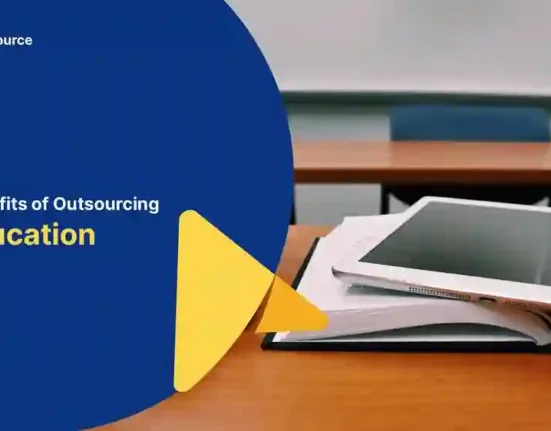Life coaching is a dynamic and transformative field that helps individuals achieve their goals, overcome obstacles, and lead more fulfilling lives. One crucial element that plays a significant role in the effectiveness of life coaching is emotional intelligence (EI). Emotional intelligence refers to the ability to recognize, understand, manage, and harness one’s own emotions as well as the emotions of others. In this comprehensive guide, we will explore the profound impact of emotional intelligence in life coaching and how it can lead to transformative results.
Understanding Emotional Intelligence
Emotional intelligence consists of several key components, including:
- Self-Awareness: The ability to recognize and understand one’s own emotions, strengths, weaknesses, values, and motivations.
- Self-Regulation: The capacity to manage and control one’s emotions, impulses, and reactions effectively, even in challenging situations.
- Empathy: The skill of recognizing and understanding the emotions, perspectives, and needs of others, and showing compassion and understanding.
- Social Skills: The ability to build and maintain positive relationships, communicate effectively, resolve conflicts, and collaborate with others.
Emotional intelligence is not only about understanding and managing emotions but also about using emotions as a source of motivation, creativity, and connection.
The Importance of Emotional Intelligence
Emotional intelligence is crucial for various aspects of life, including personal development, relationships, leadership, and overall well-being:
- Personal Development: EI enables individuals to better understand themselves, make informed decisions, set and achieve goals, and navigate life’s challenges.
- Relationships: Effective communication, empathy, and conflict resolution skills are essential for building and maintaining healthy relationships.
- Leadership: Leaders with high EI are often more effective in motivating and leading their teams, fostering collaboration, and creating a positive work environment.
- Stress Management: Emotional intelligence helps individuals cope with stress and adversity by regulating their emotional responses.
- Self-Motivation: Individuals with high EI are more likely to stay motivated, persevere in the face of setbacks, and pursue personal and professional growth.
The Role of Emotional Intelligence in Life Coaching
Emotional intelligence plays a pivotal role in life coaching, enhancing the coach-client relationship and driving transformative outcomes:
- Building Rapport and Trust: Coaches with high EI can establish rapport and trust with their clients more effectively. Clients feel understood, valued, and supported, creating a safe space for personal growth.
- Effective Communication: Emotional intelligence enables coaches to communicate clearly, actively listen, and ask empathetic questions. This fosters open and productive dialogue between coach and client.
- Recognizing Client Emotions: Coaches with strong EI can perceive and accurately identify the emotions clients are experiencing, even when they may not explicitly express them. This insight helps coaches tailor their approach to the client’s emotional state.
- Empathetic Understanding: Coaches with high EI can empathize with their clients’ experiences, showing understanding and compassion. This fosters a deeper connection and allows clients to feel heard and validated.
- Emotional Regulation: Coaches who can manage their emotions effectively are less likely to project their own feelings onto clients or react negatively to challenging situations. This promotes a calm and supportive coaching environment.
- Conflict Resolution: Emotional intelligence equips coaches with conflict resolution skills, helping clients navigate interpersonal conflicts and develop healthier relationships.
- Motivation and Goal Setting: Coaches with EI can motivate and inspire clients, helping them set and achieve meaningful goals aligned with their values and passions.
- Empowering Clients: Emotional intelligence empowers coaches to empower their clients. Coaches can guide clients in developing their own emotional intelligence, helping them become more self-aware and self-regulated.
Case Study: Transformative Life Coaching with Emotional Intelligence
Let’s explore a real-life scenario where emotional intelligence played a pivotal role in life coaching:
Client Profile: Emily, a 32-year-old marketing manager, sought life coaching to overcome career-related challenges and personal insecurities.
Life Coaching Journey:
- Building Rapport and Trust: Emily’s life coach, who had a high level of emotional intelligence, established a trusting and supportive relationship from the start. Emily felt comfortable sharing her concerns and goals.
- Effective Communication: The coach actively listened to Emily’s challenges and asked empathetic questions to gain a deeper understanding of her feelings and motivations.
- Recognizing Client Emotions: Through keen observation and careful listening, the coach identified that Emily was experiencing self-doubt and anxiety related to her career.
- Empathetic Understanding: The coach expressed understanding and empathy, assuring Emily that her feelings were valid. This validation helped Emily feel heard and less alone in her struggles.
- Emotional Regulation: The coach remained composed and focused on Emily’s needs, even when Emily expressed frustration or negativity. This emotional regulation created a safe space for Emily to explore her emotions.
- Conflict Resolution: The coach helped Emily address conflicts at work by teaching her effective communication and conflict resolution strategies.
- Motivation and Goal Setting: The coach used emotional intelligence to inspire Emily, helping her set ambitious yet achievable career goals and motivating her to take action.
- Empowering Clients: Through coaching sessions, Emily developed her own emotional intelligence, becoming more self-aware of her feelings and better equipped to manage them.
Results: Over time, Emily gained clarity about her career path, overcame her insecurities, and achieved her professional goals. Her transformation was not only due to her own growth in emotional intelligence but also the guidance and support of her emotionally intelligent life coach.
In Conclusion
Emotional intelligence is a vital component of effective life coaching, enhancing the coach-client relationship and facilitating transformative personal growth. Whether you’re seeking to overcome personal challenges, improve your relationships, or achieve your goals, emotional intelligence can be a powerful tool. When considering life coaching, look for coaches who exhibit high emotional intelligence to ensure you receive the empathy, understanding, and guidance necessary for a successful coaching journey. Embrace the opportunity to develop your emotional intelligence and embark on a transformative path toward a more fulfilling and emotionally intelligent life.







